Last Updated on 5 months by Christopher Jan Benitez
| Image | Product | Detail |
|---|---|---|
 | WordPress |
|
 | Substack |
|
 | Ghost |
|
 | Medium |
|
 | Tumblr |
|
Choosing a blogging platform is an essential decision for any blogger. With the many available options, it’s not always clear which platform best suits your goals and needs.
This article aims to be your go-to guide for selecting the top blogging platforms in 2024. We will break down and compare the key factors that matter most, such as ease of use, customization abilities, functionality and monetization tools.
Rather than simply listing platforms, we evaluate what each one does best. We’ll explore how features vary depending on whether you want a simple personal blog or a more sophisticated website to build an audience and business.
By the end, you will better understand the different types of platforms and what to consider most regarding your blogging objectives. Our platform comparisons and recommendations will help you make an informed choice to find the optimal solution for your unique needs.
- Understanding Blogging Platforms
- Review of Top Blogging Sites
- Features of The Best Blog Sites
- Frequently Asked Questions
- What are the top blogging platforms for beginners?
- Which free blogging platforms offer the best features?
- How do you choose a blogging platform for making money?
- What are the best blogging platforms for SEO?
- Which blogging platform is the most user-friendly in 2023?
- What do users on Reddit recommend as the best blogging platform?
- Conclusion
Understanding Blogging Platforms
Blogging platforms enable you to share content online by publishing blog posts. Choosing the best platform for your needs is crucial, as it can significantly impact your blog’s growth, user experience, and revenue-generating potential. The factors influencing your choice include your blogging goals, budget, and technical knowledge.
Blog platforms with features, templates, and support options can be free or paid. Some free platforms appeal to beginners, while others cater to more advanced users seeking customizability and monetization options. Below is a comparison of some of the most popular blogging platforms available today:
| Platform | Notable Features | Used For |
| WordPress | Customizability, SEO options, large community for support | Bloggers, business websites, eCommerce |
| Substack | Audience ownership, monetization tools, Newsletter focus | Journalists, writers, content creators |
| Ghost | Clean, minimalistic design, fast performance | Bloggers, content marketers, publishers |
| Medium | Simple interface, built-in readership, article analytics | Writers, thought leaders, content creators |
| Tumblr | Microblogging, social media integration, emphasis on visuals | Artists, creatives, fan communities |
Before making a decision, consider the learning curve associated with each platform. A platform like WordPress may have a steeper learning curve but offer more incredible customizability and features. In contrast, platforms like Medium and Substack are more user-friendly but might have limitations on customization and monetization.
Evaluating the blogging platform for its value for money, including storage options, subscription pricing, and availability of quality templates and plugins, is essential. Scalability is also worth considering, as your blog might grow over time and require more resources to handle increased traffic and content for effective blogging.
Review of Top Blogging Sites
WordPress
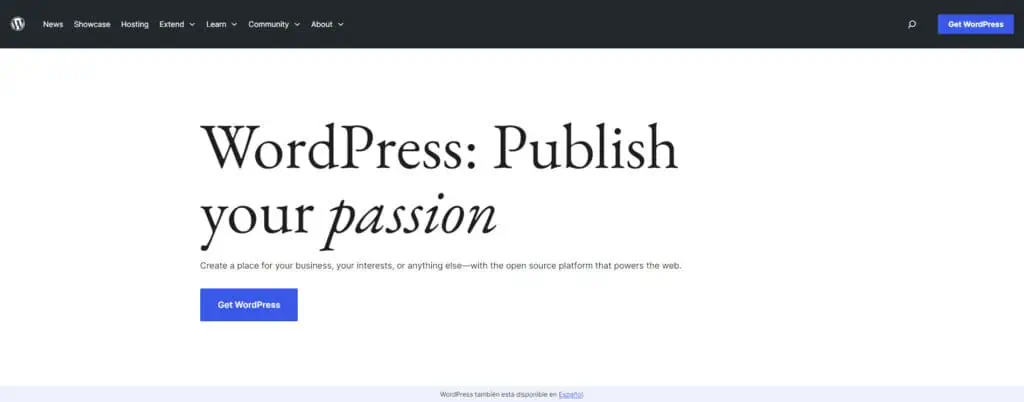
WordPress.org is one of the most popular blogging platforms around. It offers various customization options and a vast library of plugins and themes. This open-source platform allows you to create a beautiful website, blog, or app easily. You can easily manage your content and categories, making it an excellent choice for beginners and experienced bloggers. However, a WordPress site requires more technical knowledge than other platforms, and you may need to handle updates and security measures yourself.
Substack
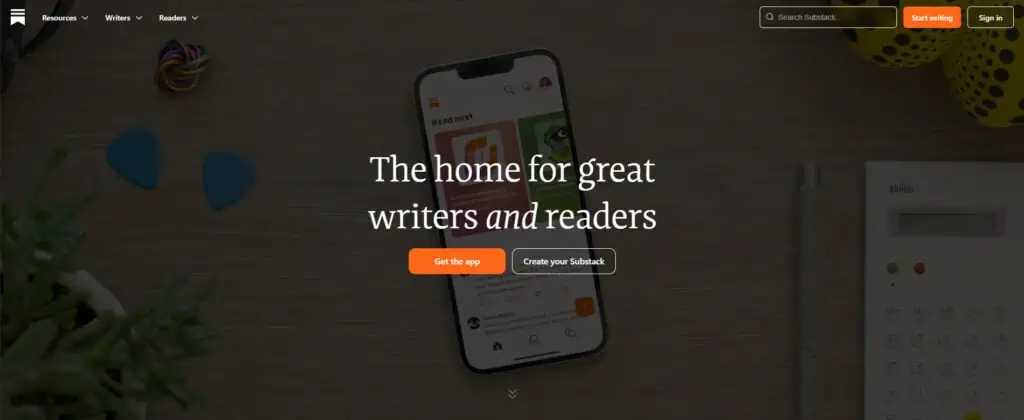
Substack is considered one of the best blogging platforms because it allows writers and publishers to own their audience and monetize their work. It contains features like audience ownership, powerful monetization tools, seamless newsletter integration, and simple yet flexible templates optimized for readable long-form writing. Writers fully own their audience by hosting content on their Substack site and newsletter. They aren’t dependent on other platforms, allowing them to monetize their work more directly through tools provided for paid subscriptions, one-time payments, and branded sponsorships, making it possible to run a paid publication successfully.
Ghost
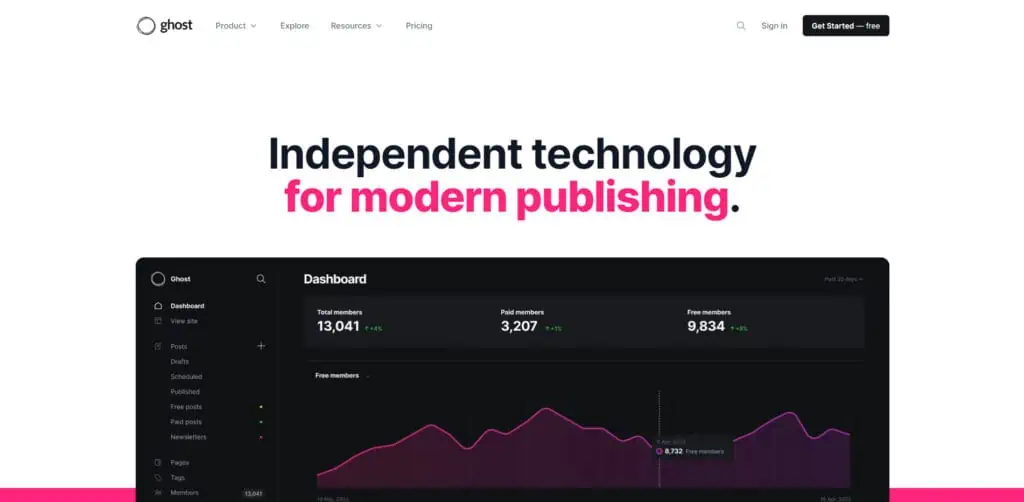
Ghost is a sleek and modern blog platform focusing on a smooth writing and reading experience. It emphasizes simplicity and speed, providing a clutter-free interface for writing your blog posts. With its lightweight nature, ghost’s minimalist design allows your content to shine, loading pages faster for your readers. Although it has fewer customization options and features than WordPress, Ghost could be appealing if you prioritize simplicity and a distraction-free writing environment.
Medium
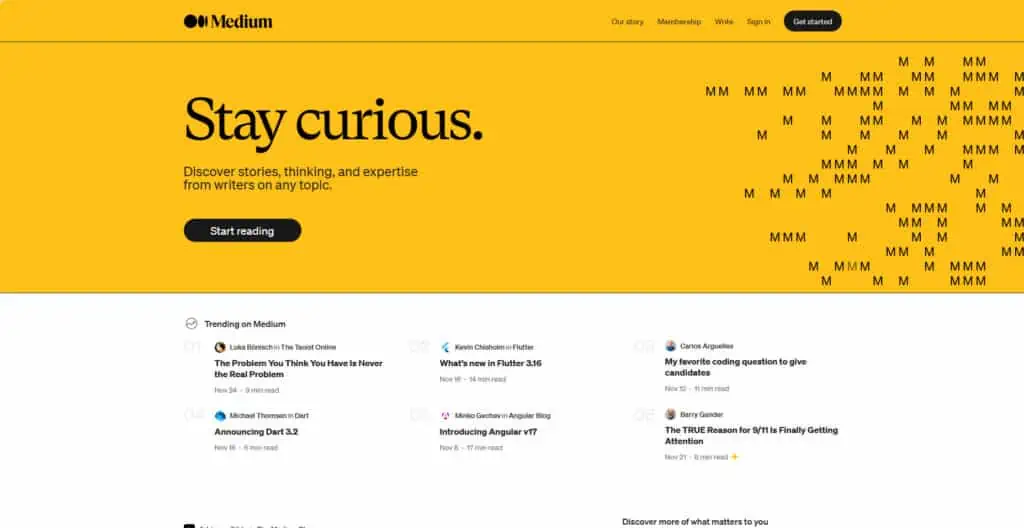
Medium is a platform where readers can discover dynamic thinking and diverse voices. It offers a rich community of writers and readers, making it an excellent choice for bloggers who want to reach a wider audience. Medium’s editor provides a clean and straightforward writing environment. However, you have limited control over your blog’s design and customization, and you must abide by Medium’s terms of service, which can restrict the content you publish.
Tumblr
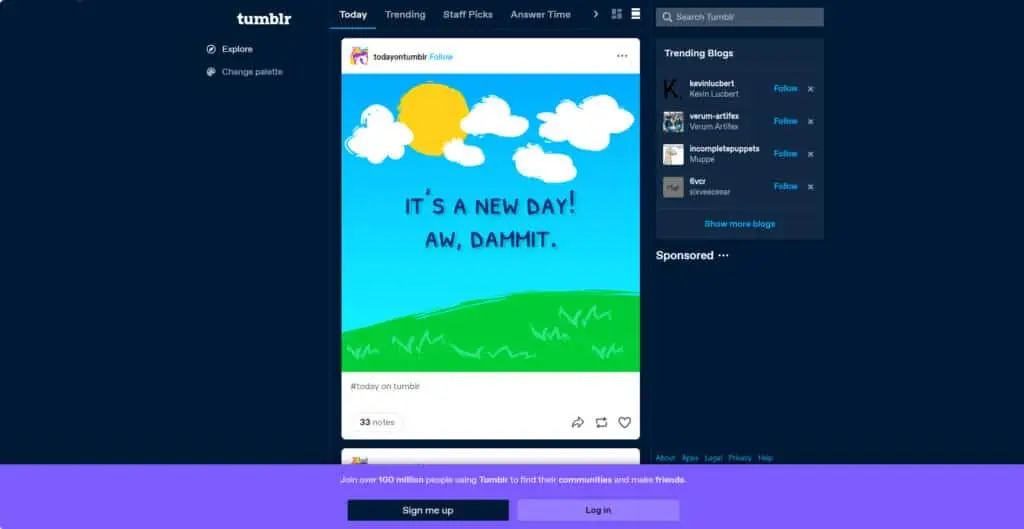
Tumblr is still considered one of the best blogging platforms, allowing users to easily create multimedia blogs and share content through a simple interface. It has a large, active community, making it ideal for creative expression and discovery. Users can customize their blogs with rich themes and customize domains to build their brands. With features for posting text, images, quotes, links, audio and video quickly, it remains engaging for users to scroll through their dashboards to discover new content and accounts.
Features of The Best Blog Sites
Ease of Use
The platform should have a user-friendly interface and an intuitive design, making creating, editing, and managing your content easy. Many popular platforms (such as Wix and Weebly) provide drag-and-drop editors that make it simple to design your blog without writing any code. Furthermore, a well-designed platform will offer:
- A straightforward setup process
- Easy integration of multimedia elements (images, videos, and audio files)
- Seamless updating and maintenance capabilities
Functionality
The functionality aspect of a blogging platform refers to the range of tools and features available to enhance the content and design of your blog. Some key features to look for include:
- Customizability – The ability to personalize the look and feel of your blog with themes and templates. Many platforms offer a variety of professional themes to choose from and make it easy to implement your branding elements. Also, adding a custom domain name, an option for the different blogging sites in this list, is necessary for branding purposes.
- SEO tools – These are basic blogging tools that assist in optimizing your blog for search engines. This may include built-in support for metadata, descriptive URLs, and sitemaps.
- Integration with social media platforms – The ability to easily share your content across social platforms and boost traffic to your blog.
- Analytics – Google Analytics provides users insightful data about your blog’s performance, such as page views, time spent on pages, and audience demographics.
Scalability
Scalability is an essential factor to consider when choosing the best blogging platform for your needs. This means that the platform should be able to grow with you as your blog audience expands and your requirements change. Here are some areas to examine for scalability:
- Hosting options: The ability to upgrade your web hosting plan to accommodate increased traffic and storage needs.
- E-commerce capabilities: Whether the platform supports e-commerce tools for selling digital or physical products on your blog.
- Multiple users and permission levels: The option to add new users and assign specific roles and access rights to grow and manage your team more efficiently.
Frequently Asked Questions
What are the top blogging platforms for beginners?
The top blogging platforms for beginners include WordPress.com and Medium. These platforms offer easy-to-use interfaces and good features for those new to blogging.
Which free blogging platforms offer the best features?
The best free blog platforms with a wide range of features include WordPress.com and Medium. These platforms provide a user-friendly experience, various templates, and a supportive community to help users get started with their blog.
How do you choose a blogging platform for making money?
When selecting a blogging platform for monetizing purposes, consider the following factors: the ability to run ads and access affiliate marketing opportunities. A platform like WordPress.org provides these features, making them suitable choices for making money.
What are the best blogging platforms for SEO?
There’s only one blogging platform that’s great for SEO, and that is WordPress.org. It offers built-in SEO features, plugins, and integrations that can help boost your blog’s visibility in search engines.
Which blogging platform is the most user-friendly in 2023?
User-friendly blogging platforms like WordPress.com, Medium, and Substack will remain popular due to their simple interfaces, customizable templates, and drag-and-drop editing tools, making creating and managing their blogs easy.
What do users on Reddit recommend as the best blogging platform?
Users on Reddit often recommend WordPress.org for its versatility, extensive plugin ecosystem, and customization options. However, the choice may vary depending on individual preferences and needs, so it’s best to explore a few options before deciding.
Conclusion
Selecting the right blogging platform comes down to matching your needs and goals to the platform’s strengths. While beginners may find a free blogging service like WordPress.com suitable, those looking to grow an audience or business over time will want more flexibility and monetization options from paid platforms.
WordPress remains the most full-featured option, able to scale with your needs through its vast ecosystem of plugins and themes. However, its more complex interface may not suit those wanting a more effortless drag-and-drop experience.
For blogs prioritizing visual design over custom code, Medium and Substack provide simplified interfaces that allow focusing on content without technical skills—however, their lack of customization limits advanced users.
Ultimately, the best platform depends on balancing factors like your technical skills, budget, content priorities and monetization goals. We hope this guide has helped illuminate the pros and cons of different options so you can confidently choose the blogging platform that empowers and inspires you to share your unique message with the world.
